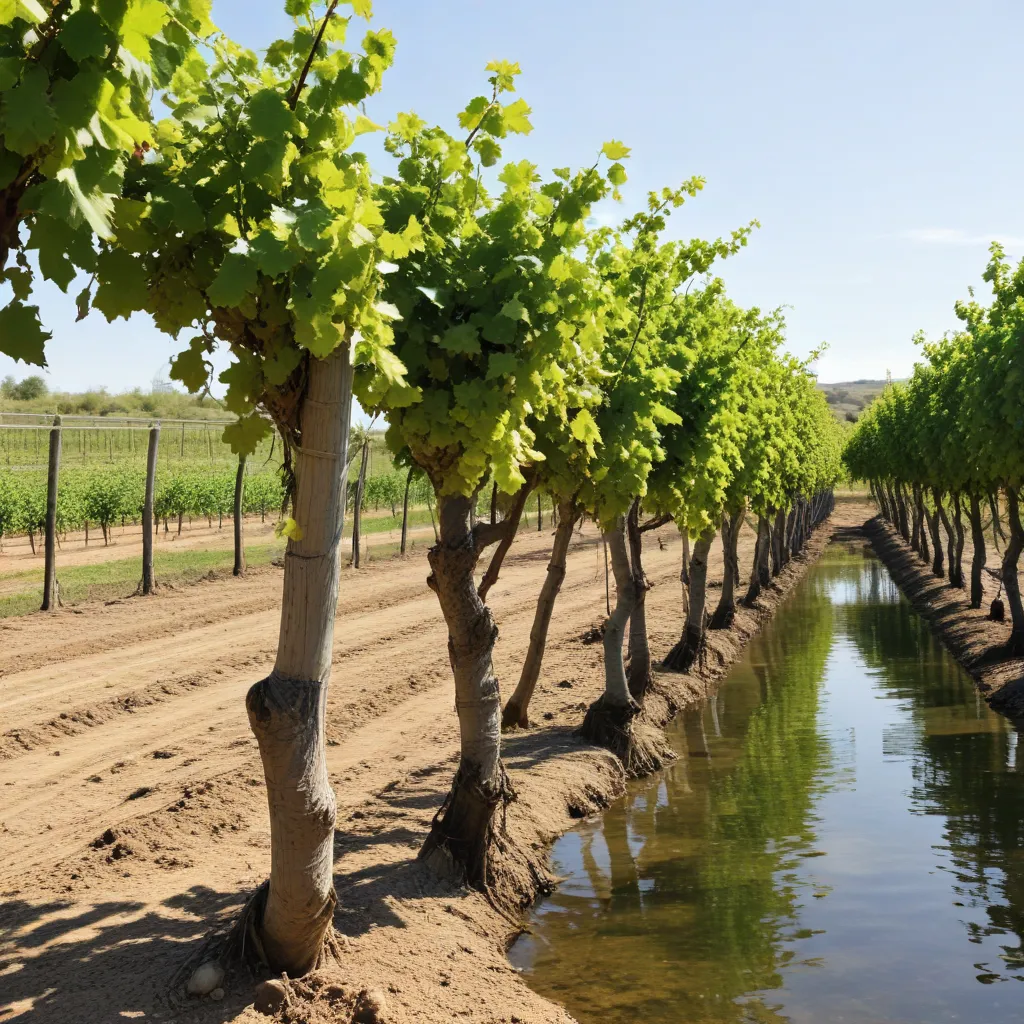
As the world becomes increasingly aware of the need for environmental sustainability, the wine industry has emerged as a leader in adopting eco-friendly practices. At Wine Garden Inn, we are committed to promoting sustainable viticulture – the art of grape growing that prioritizes the well-being of our planet. One crucial aspect of this approach is the implementation of effective water conservation strategies.
Efficient Irrigation Systems
Water is the lifeblood of any vineyard, and managing this precious resource is of utmost importance. At Wine Garden Inn, we have embraced the use of drip irrigation systems, which deliver water directly to the roots of the vines, reducing the amount of water lost to evaporation or runoff. By precisely controlling the flow of water, our vintners can ensure that each vine receives the optimal amount, minimizing waste and promoting healthy growth.
Complementing our drip irrigation system, we have also implemented the use of soil moisture sensors and weather monitoring technologies. These tools allow us to closely track the moisture levels in our soils and make informed decisions about when and how much to irrigate. This data-driven approach ensures that we only apply water when it is truly needed, further enhancing our water conservation efforts.
Water Recycling and Reuse
Sustainability extends beyond the vineyard and into the winery itself. At Wine Garden Inn, we have invested in advanced wastewater treatment systems that allow us to recycle and reuse water throughout our production process. This includes capturing and purifying water used for cleaning and sanitation, as well as any excess water from our fermentation and bottling operations.
By recycling and reusing this water, we minimize the strain on local water sources and reduce our overall water footprint. This not only benefits the environment but also contributes to the long-term viability of our winemaking operations, ensuring that we can continue to produce high-quality wines for generations to come.
Drought-Resistant Grape Varieties
In the face of changing climatic conditions and the increasing frequency of droughts, we have also focused on cultivating drought-resistant grape varieties. By carefully selecting rootstocks and grape clones that are well-suited to our local climate, we can reduce our water consumption while maintaining the unique terroir and flavor profiles that our wines are known for.
One such variety that thrives in our Mediterranean-influenced climate is Mourvèdre. This resilient grape variety has deep roots that allow it to access water reserves deep underground, reducing the need for extensive irrigation. By incorporating Mourvèdre and other drought-tolerant grapes into our vineyards, we are ensuring the long-term sustainability of our operations while continuing to produce exceptional wines.
Greenhouse Gas Emissions Reduction
Sustainability at Wine Garden Inn extends beyond water conservation. We are also committed to reducing our greenhouse gas emissions and mitigating our overall environmental impact. One of the ways we achieve this is through the integration of renewable energy sources, such as solar panels, throughout our winery and vineyard operations.
By generating our own clean, renewable electricity, we reduce our reliance on fossil fuels and decrease our carbon footprint. This not only benefits the environment but also insulates our business from the fluctuating costs of traditional energy sources, ensuring the long-term viability of our operations.
Biodiversity Conservation
Sustainable viticulture is not just about optimizing resource use; it’s also about preserving and enhancing the natural ecosystems that surround our vineyards. At Wine Garden Inn, we have implemented a range of strategies to promote biodiversity and support the health of our local environment.
One such strategy is the installation of owl boxes throughout our vineyards. By providing nesting habitats for these natural predators, we have seen a significant reduction in the population of rodents and other pests that can pose a threat to our vines. This integrated pest management approach allows us to minimize the use of synthetic pesticides, further reducing our environmental impact.
Precision Agriculture Techniques
Embracing the latest advancements in agricultural technology, we have also incorporated precision agriculture techniques into our vineyard management practices. This includes the use of remote sensing technologies, such as drones and satellite imagery, to gather detailed data on soil conditions, vine health, and resource needs.
By leveraging this data, our vintners can make more informed decisions about irrigation, fertilizer application, and other vineyard practices. This variable-rate application approach ensures that we only apply resources where and when they are needed, further enhancing our water and nutrient use efficiency.
Waste Management Strategies
Sustainable viticulture also requires a comprehensive approach to waste management. At Wine Garden Inn, we have implemented a range of strategies to minimize the amount of waste generated throughout our operations and to ensure that any waste produced is handled responsibly.
This includes the composting of grape skins, stems, and other organic matter generated during the winemaking process. By transforming these byproducts into compost, we are able to enrich the soil in our vineyards, reducing the need for synthetic fertilizers and further closing the loop of our sustainable practices.
Embracing the Future of Sustainable Winemaking
As the wine industry continues to evolve, the demand for sustainable practices is only expected to grow. At Wine Garden Inn, we are proud to be at the forefront of this movement, implementing innovative strategies to conserve water, reduce our environmental impact, and promote the long-term health of our vineyards and the surrounding ecosystem.
By embracing sustainable viticulture, we are not only producing exceptional wines that showcase the unique terroir of our region but also contributing to the broader effort to create a more sustainable future for our industry and our planet. We invite you to visit www.winegardeninn.com to learn more about our commitment to sustainable winemaking and to experience the fruits of our labor.
